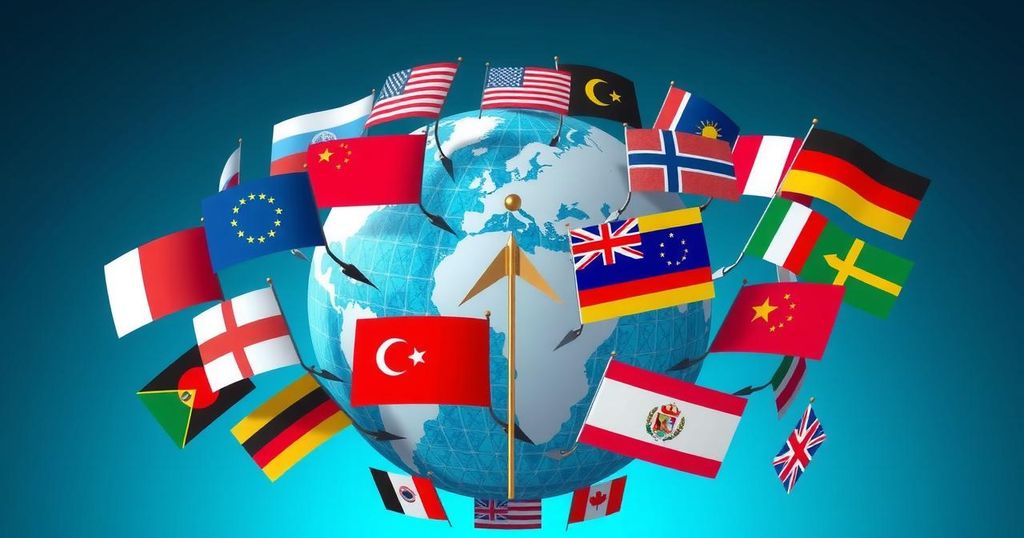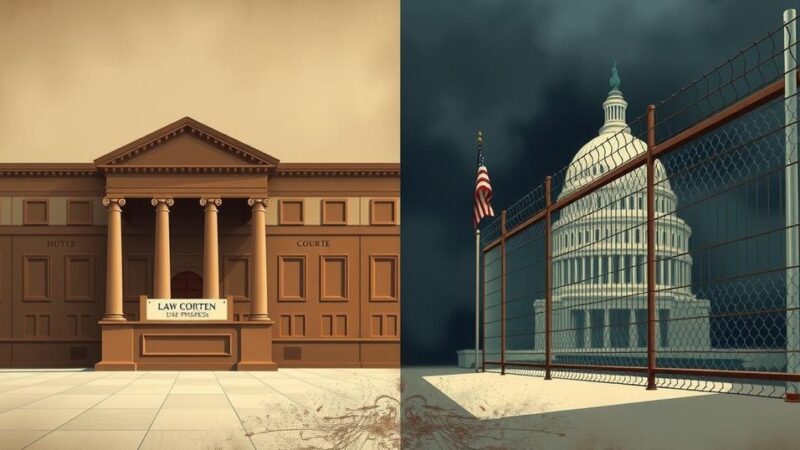White House spokesperson Karoline Leavitt confirmed that President Trump’s “Liberation Day” tariff plans will not include exemptions for reciprocal tariffs. Highlighting foreign tariffs on U.S. products, she condemned these practices as unfair to American workers. A related report on trade barriers was also released, detailing obstacles faced by U.S. exporters and emphasizing the administration’s commitment to fostering fair trade relationships.
On Monday, White House spokesperson Karoline Leavitt confirmed that there will be no exemptions for reciprocal tariffs as part of President Donald Trump’s upcoming “Liberation Day” plans. During this briefing, Ms. Leavitt identified significant tariffs imposed by other nations on American products, asserting the necessity to cease these “unfair trade practices”.
President Trump is set to announce reciprocal tariffs on April 2, which he has designated as “Liberation Day” for America. Ms. Leavitt noted, “The goal of Wednesday is a country-based tariff, but certainly sectoral tariffs,” emphasizing the President’s commitment to enacting these measures and stating, “It’s time for reciprocity.”
Ms. Leavitt showcased a chart highlighting the substantial tariffs from foreign nations, including a 700% tariff from Japan on rice and a 100% tariff from India on agricultural imports. She expressed concern about the consequences of these tariffs on American businesses, stating, “This makes it virtually impossible for American products to be imported into these markets…”. Ms. Leavitt condemned the tariffs as detrimental to American jobs and businesses.
The objective of the reciprocal tariffs is to match higher tariff rates imposed by other countries, countering non-tariff barriers that place U.S. exports at a disadvantage. The Trump administration argues that these discrepancies in tariffs are injurious to American interests and advantage foreign companies.
Additionally, the administration released a detailed report identifying trade barriers that U.S. exporters face. The National Trade Estimate Report on foreign trade barriers outlines both tariff and non-tariff barriers that hinder exports, such as restrictive food safety regulations and public procurement rules.
US Trade Representative Jamieson Greer praised President Trump for acknowledging these trade barriers, stating, “No American President in modern history has recognized… the wide-ranging and harmful foreign trade barriers…” He asserted the administration’s commitment to correcting these unfair practices to benefit American businesses and workers.
In conclusion, the White House has reiterated its stance on implementing reciprocal tariffs to address significant trade imbalances and unfair practices perpetrated by other countries. The forthcoming tariffs, intended to be announced on April 2, aim to safeguard American industries from high foreign tariffs and establish a more equitable trade environment. Moreover, the report detailing foreign trade barriers underscores the ongoing challenges faced by U.S. exporters and the administration’s determination to rectify these inequities.
Original Source: www.ndtv.com






